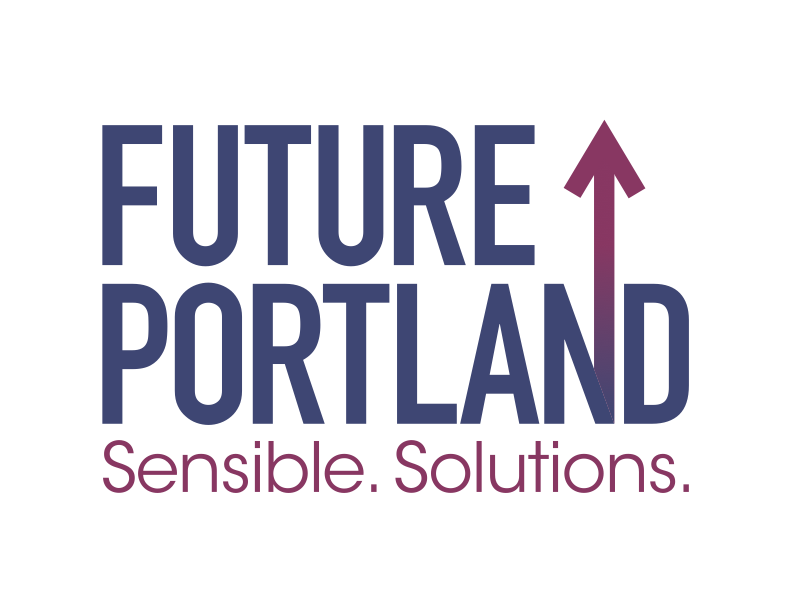Policy Platform
Sanctioned Camping
Oregon falls under the 9th District Court of Appeals, which the Martin v. Boise case states that no jurisdiction can make sleeping outside illegal if there are not enough shelter beds available. Oregon has gone a step further in codifying this in state law, and in 2023 requested all jurisdictions to set Time, Place, and Manner (TPM) rules to comply.
Future Portland agrees that no one should be arrested for sleeping outside, but that we need to set TPM rules so that we can still be a functioning community with usable shared public spaces where all community members can feel safe and healthy. We support the city’s Temporary Alternative Shelter Sites (TASS) as a way to fast track people into transitional housing by giving them a safe space to stabilize at first. We support the variety of other options both private and public partnerships have brought to Multnomah County, from the city’s smaller Safe Rest Villages to county-run 24/7 low barrier shelters to church partnerships to build tiny villages.
We absolutely need somewhere to refer people to as we sweep these illegal encampments, otherwise we are just pushing the issue around. We need more of these spaces available in order to completely outlaw illegal street camping for the safety and livability of our region for both housed and unhoused residents. We need to know where the unhoused are living and what their barriers to housing are so we can truly help them get off the streets and recover from their trauma.
JOHS Vendor Metrics
Several recent audits have shown the public that Multnomah County does not track line-item spending and results, including in the very important Joint Office of Homeless Services (JOHS) that comprises the majority of their annual budget. This goes hand-in-hand with implementing Built for Zero to ensure transparency and continuous improvement practices for all vendors being paid with county tax dollars to ensure we are only funding successful programs. We can’t know this until we see where every dollar is going and what the results of that spending are.
Homelessness Plan
There is no overarching plan to combat homelessness in Multnomah County. There are hundreds of small ideas and programs that have been rolled out over the years, but no one larger grand design connecting these programs.
Built for Zero
Built for Zero is at its most base format, a by-name database to track the homeless population. It’s a data collection tool that can be used by multiple agencies that is a continuous improvement and system reform framework to increase the Joint Office of Homeless Services’ effectiveness in delivering services and getting people into housing. This is the tool Multnomah County needs to be using for a full transparency and accounting of where our tax dollars are going and where they are being used most effectively. Nonprofit providers need to understand oversight is not punishment, but a tool to help them succeed and improve their program offerings.
Good Neighbor Agreements
Good neighbor agreements at the city-level are not enforceable, with the exception of the Temporary Alternative Shelter Sites (TASS) sites which are the only sanctioned campsites that have service contracts owned by the city. Every other shelter or village, including city-sited Safe Rest Villages (SRVs), the service provider contract is through the County via the Joint Office of Homeless Services. Therefore, it is up to Multnomah County to create and enforce Good Neighbor Agreements with the neighborhoods they are inundating with services to ensure both their clients and the neighbors are able to live in a safe, healthy environment.
The nonprofit service providers the county hires to do this important work are the people who know how to interact properly with this population and offer them alternative options, while also politely asking them to move the proper distance away from the service site that has been agreed upon by the GNA and/or the Time Place Manner (TPM) restrictions. We cannot expect people to stabilize and start a path to recovery and permanent housing if we are permitting temptation to set up right outside of their new front doors.
Sobering & Recovery Beds
The county and the state need to fund an increase in both sobering and recovery beds, including places where our first responders and law enforcement are able to drop off those in need 24 hours a day, 7 days a week. These are current gaps in our system; many people are ready to accept help but are on long waiting lists to receive it. By the time their name gets called, they could have changed their minds on receiving assistance, or worse, dead. We absolutely need to be able to meet people where they are at, and we accomplish that by having places for them to go that are not expensive private institutions.
Future Portland supports the county building a 24/7 drop-off sobering center, something Multnomah County has been missing since 2019. The community needs to understand that sobering is different than detox, and many will exit the sobering center and repeat their behavior. We need somewhere proper to send people to ‘dry out’ for the safety of both themselves and the community that isn’t a hospital emergency department. Building a sobering center is a first step in building the continuum of care we need so that eventually a sobering center can be the front door to treatment and recovery we hope the county will move to create next.





